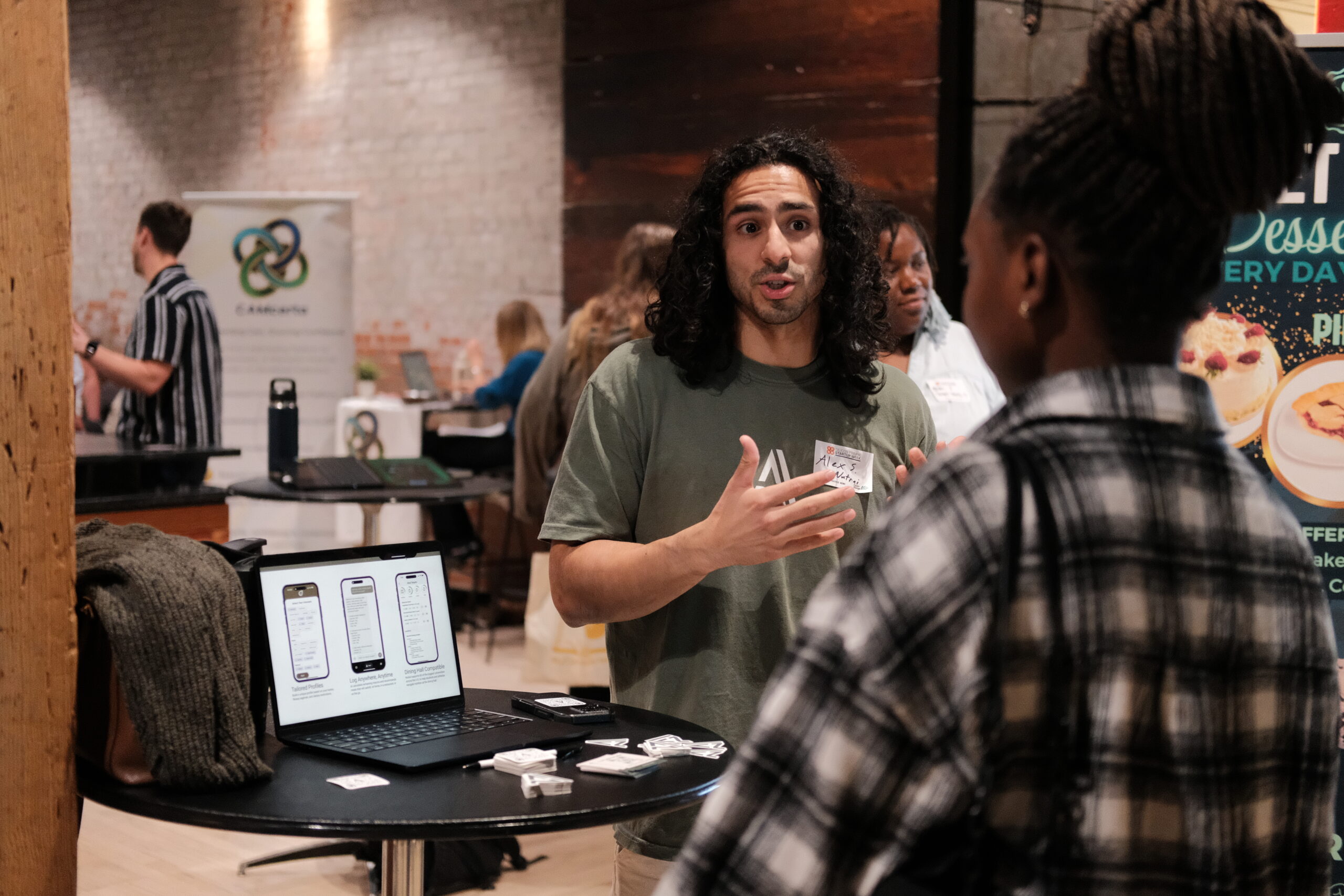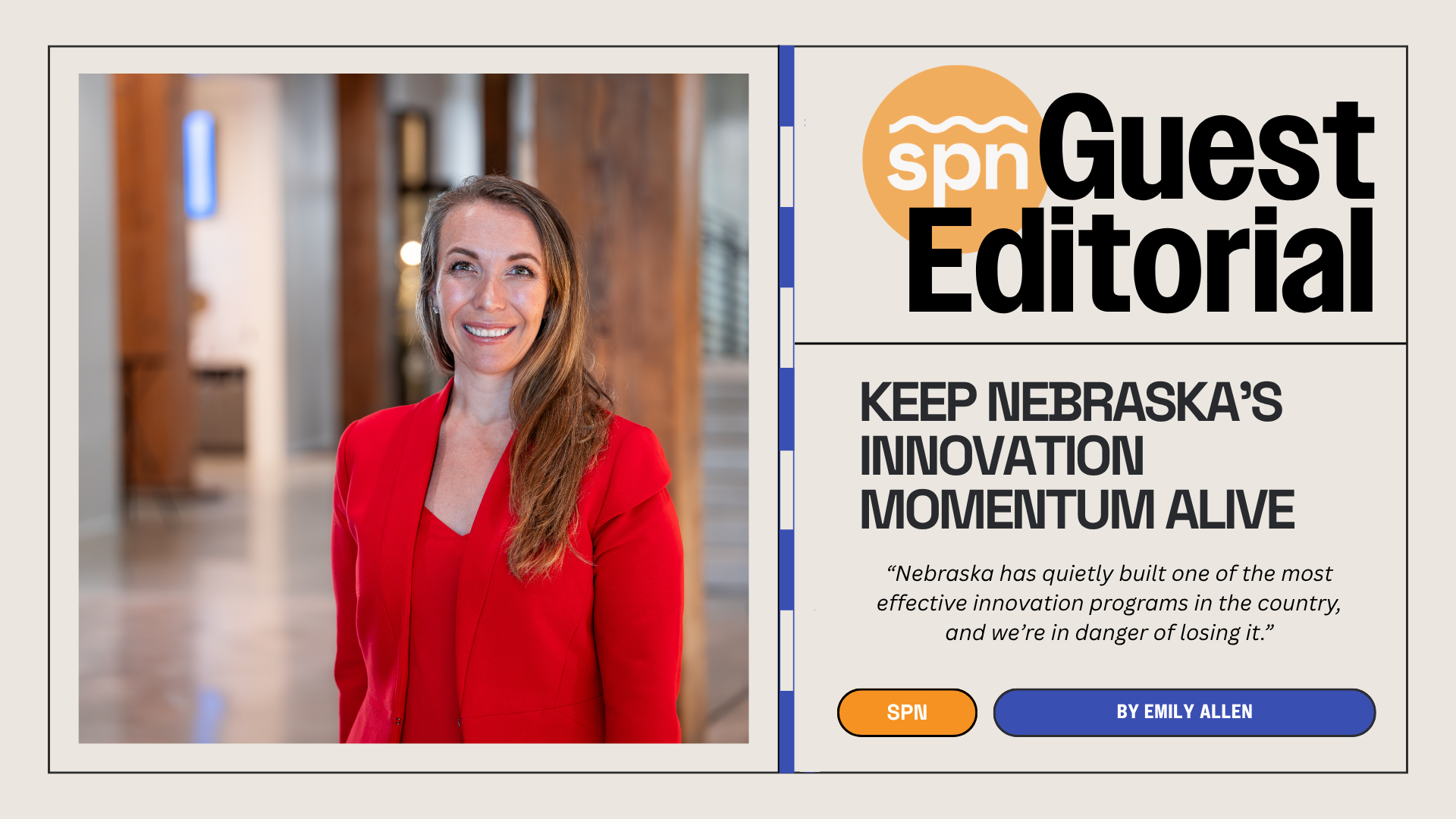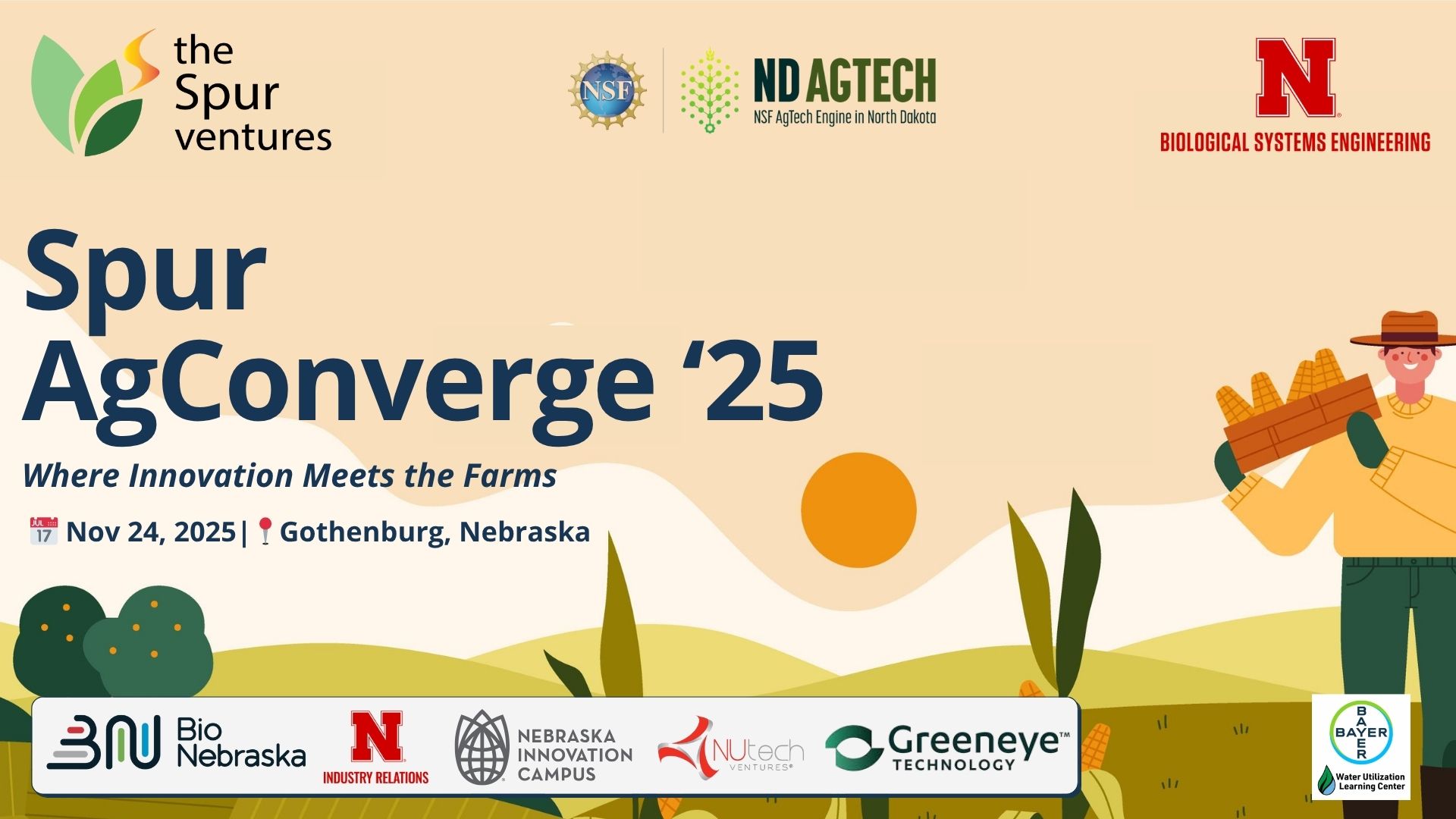 About the Author: Tom Chapman, the director of entrepreneurship and innovation for the Greater Omaha Chamber of Commerce, is a regular guest contributor to Silicon Prairie News. In his series, Innovation Chamber, Chapman draws on his professional experience to lend advice, share observations and highlight milestones to the entrepreneurial community in the Silicon Prairie.
About the Author: Tom Chapman, the director of entrepreneurship and innovation for the Greater Omaha Chamber of Commerce, is a regular guest contributor to Silicon Prairie News. In his series, Innovation Chamber, Chapman draws on his professional experience to lend advice, share observations and highlight milestones to the entrepreneurial community in the Silicon Prairie.
Chapman is passionate about helping local ecosystems grow into blossoming, fertile environments for new ventures. In his career, he has worked with hundreds of new ventures, many very large companies seeking innovation advice and a host of funders looking for deals.
To learn more about Chapman, see our post: “Introducing Tom Chapman’s Innovation Chamber.” To contact Chapman, email him at tchapman@omahachamber.org or find him on Twitter, @tchap623.

Big Omaha speaker Shervin Pishevar was “an incredibly positive person.” Photo by Malone & Company.
I have been to all three Big Omaha events, and they have all been special. However, this one particularly resonated for me on two key themes: positivity and determination. Both of these personal characteristics have been suggested as key components that differentiate entrepreneurs from the general public.
Positivity
At Big Omaha, we had the opportunity to hear from Marc Eckō, Shervin Pishevar and Ben Huh. These are not irrational people – out of touch with reality. But each was an incredibly positive person in both public and private. In spending time with each of them, it was obvious that they had struggled with personal challenges that would have defeated lesser folks, but ultimately it was their unique ability to stay positive and engaged that carried the day.
Positivity or optimism is a characteristic that research scientists have consistently highlighted when they have researched the personal characteristics of entrepreneurs. I define positivity as the almost crazy belief that an entrepreneur can succeed in the face of significant obstacles and risks. For example, in a 2009 article for the Academy of Management Journal, Hmieleski and Baron state: “The fact that entrepreneurs decide to forge ahead in the face of daunting obstacles suggests that they are high in dispositional optimism and indeed, research findings indicate that entrepreneurs score particularly high on measures of this personal characteristic.” (Academy of Management Journal, 2009, Vol. 52, No.3, p. 473). This article further writes that sometimes this optimism works to the detriment of people’s ability to adequately measure risks and ultimate failure. I might write that this is exactly how academics choose to look at the necessary (in my opinion) optimism and positivity that entrepreneurship requires in someone trying to start a high-growth business.
I would say that this is true, also, in the Midwest. Positivity and optimism seem particularly necessary in an environment where the common feedback is risk avoidance. Look at our models and the sorts of misgivings or “advice” that people here have overcome. There was not a lot of vocal (or non-vocal, even) support for companies like gift-certificates.com or Home Instead. Local people thought these ideas were a bit crazy and did not make economic sense — because what customer would ever buy these things? Whoops. However, in the catbird seat, the founder’s positivity is what seems to have overcome the sorts of negativity surrounding the perceived risk. In fact, today, it is impossible for me to consider these companies without having highly positive and determined people growing these companies. As an observer, one of the key roles that I think each supporter of the Silicon Prairie can make is to be supportive and help build positivity within the community.
In my position, I have seen some truly crazy stuff where I have no idea what it is or how it works, but I try to be technically agnostic. My role is not the market’s role. When I am a consumer of the product, I try to provide frank advice. But when I am not, I try to offer support and connections. Growing a company is really, really hard, and having supportive, positive people around is one of the reasons that places like Silicon Valley thrive. The Silicon Prairie still needs to work on this. Just because you don’t get it does not mean that it won’t be valuable. I am not an expert at very much, but after building an entrepreneurial venture, most founders are, and I can only imagine that there is nothing more infuriating than being told by an ignorant that the deal has no merit. The support from the community is a critical enabling characteristic for entrepreneurs to keep going. And this support helps build the positive, self-fulfilling prophesy. I am not sure that some of the stories heard at Big Omaha would be possible in Omaha currently. Our community needs to continue to grow to accept crazy, cocky, brilliant people taking on seemingly impossible tasks.

Marc Eckō at Big Omaha 2011. Photo by Malone & Company.
Determination
The second key characteristic is the determination. One of the hard problems in my job is that often people will value an outcome to define a decision. For example, would we value Marc Eckō’s decision to leave university early in a positive fashion if he had failed? Obviously, it’s a lot easier to call Mr. Eckō’s decision a smart one based on his tremendous success. And some of this result is based on Mr. Eckō’s own personal determination. However, most entrepreneurs don’t start by dropping out of school, in fact the average age of high-growth entrepreneurs in the country, per a 2009 study by Dane Stangler of the Kauffman Foundation, is 39.2. So, are you still determined or entrepreneurial if it takes you almost 20 years to start something?
Within this conversation, I also hear that the Midwest is different because Midwesterners get married younger or have children younger. This is a true statement, but is it really the reason that people don’t start companies? I think that there are people who don’t start companies for this reason, but I think often this is used as an excuse because the person just isn’t so passionately in love with their idea, plan and ability to execute. Steve Kiene recently described his passion to me as an obsession. Think about those that fail to start and ask if they are “obsessed” with their business. Moreover, starting a company is a risk. Not everyone wants that sort of risk in their life; it is stressful and hard and can be really damaging to relationships. Thus, starting a company is cool after the fact, and so many want to be in the “cool crowd.” But actually doing the work is really hard and, I think, the primary reason that many don’t do it.
I think when someone jumps into the ring as an entrepreneur by choice, they have suggested determination. But, by executing and clawing their way to success, they have proven that determination. I think this is one of the characteristics that people admire about Gary Vaynerchuk and one of the reasons that he is reluctant to categorically tell people to quit their jobs and do something. Not everyone can hustle the way that he does. Not everyone can ask Jamie Dimon for a meeting. Not everyone can move from a foreign country (be it Canada or Korea) to the U.S. to build something awesome. In other words, if you can’t hustle at a very high level and are not determined to succeed, having a great idea and a good team may not be enough.
So, this year my Big Omaha experience was littered with people talking about hustle and overcoming hard things. And in the context of my job and perspective, it is so incredibly interesting to see research materials on positivity and determination validated by personal experience and the personal journeys of so many of the speakers.
This post is not a proscriptive enterprise other than to say: support entrepreneurs and help them stay positive and determined (which is probably why you read this blog anyways).


